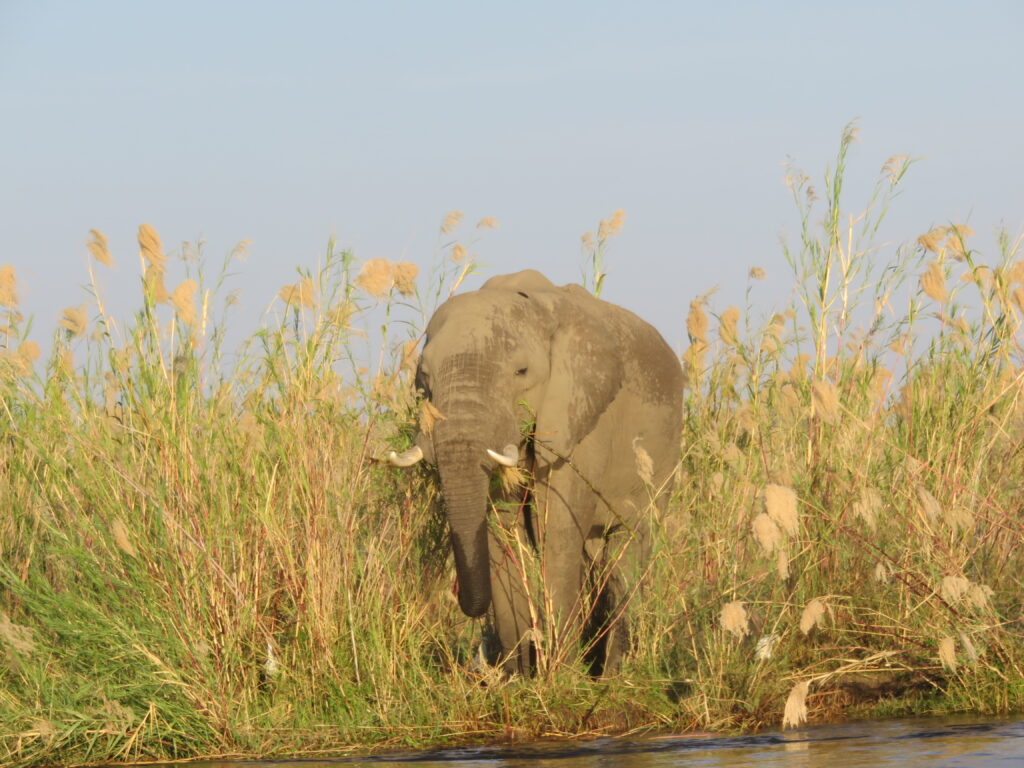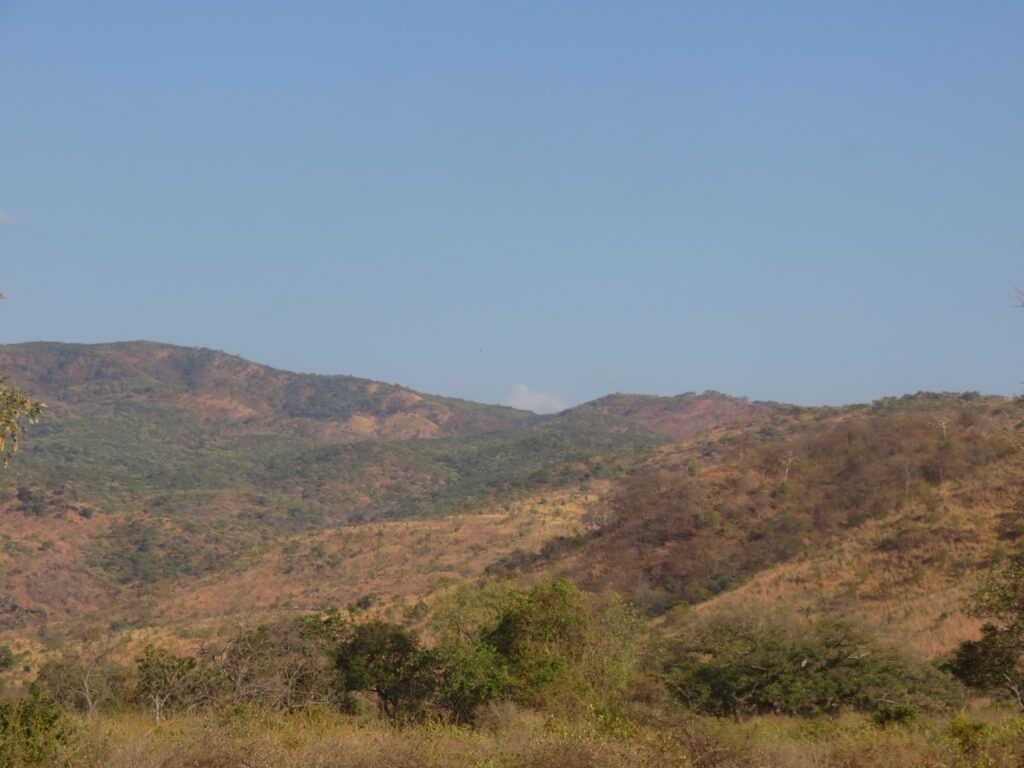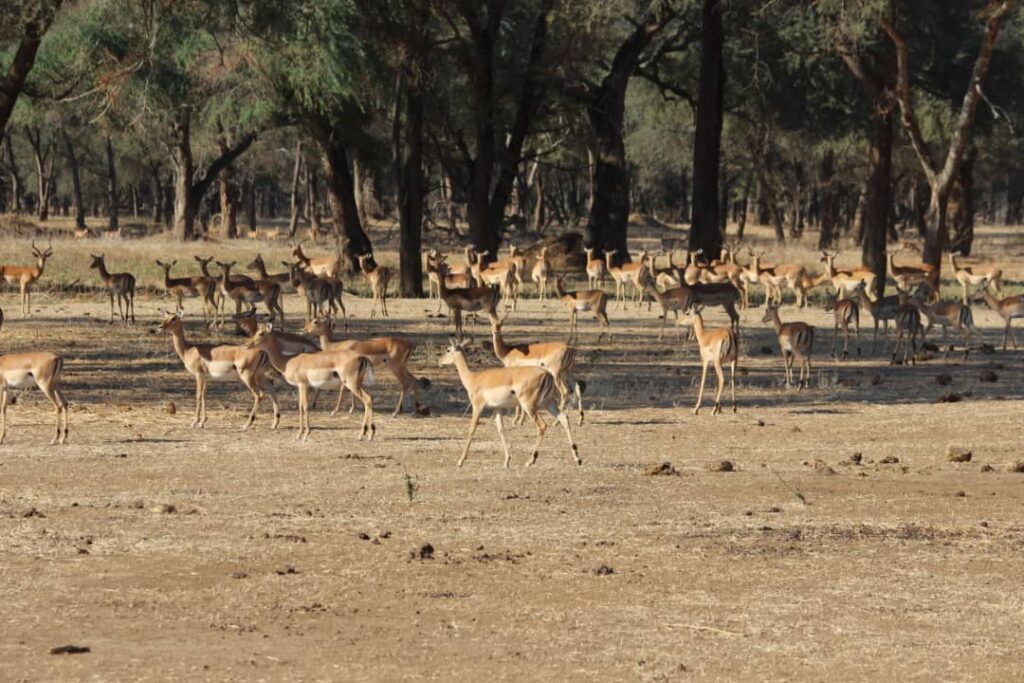BirdLife welcomes cancellation of mining project in Zambia’s Lower Zambezi National Park

Cancellation of mining project by the Zambia Environmental Management Agency (ZEMA) brings a 12-year environmental standoff to a halt.
In August 2023, conservationists in Zambia heaved a sigh of relief when the Zambia Environmental Management Agency (ZEMA) cancelled a decision to allow for mining in Zambia’s Lower Zambezi National Park (LZNP) by Mwembeshi Resources Limited, bringing a 12-year environmental standoff to a halt.
Established as a National Park in 1983, LZNP covers an area of 4,092 square kilometers along the northwestern bank of the Zambezi River. Prior to its establishment as a national park, the area was the private game reserve of Zambia’s president, which protected it from mass tourism and left it relatively untouched. A pristine wildlife sanctuary and famous tourist attraction, LZNP is home to 124 species of animals including large herds of elephants, buffaloes, 403 species of birds and 54 species of aquatic animals. Further Lower Zambezi is a vital part of the wider Zambezi basin, a significant shared resource that contributes to the economic, environmental, and social development of Southern Africa.
In 2011, Mwembeshi Resources Limited (majorly owned by a Chinese conglomerate) applied for mining rights in the park in and submitted an Environmental Impact Statement (EIS) which ZEMA rejected. Mwembeshi Resources Limited appealed this decision, and in 2014, the Minister responsible for environment overturned ZEMA’s decision and approved the mining application, which was met with opposition from various stakeholders including environmental groups.

For years, environmental groups have been battling against the proposed Kangaluwi Copper mine. In 2021, following the close of litigation processes, ZEMA approved the mining company’s resubmitted EIS, that it had rejected in 2012 – also noting that the EIS expired in 2021 (Under the laws of Zambia, if a project doesn’t commence within five years of EIS being approved, the EIS must be redone). A coalition of environmental activists, the Conservation Advocates Zambia (CAZ), approached the courts to reverse ZEMA’s approval but Zambia’s Court of Appeal dismissed the case in February 2021 based on legal technicalities. CAZ also asked ZEMA to review its decision, with no response forcing it to go to the High Court asking for a judicial review of the case to no avail, before ZEMA notified the parties that it had no authority to review its own decisions.
On 27 April 2023, CAZ appealed to the Minister of Green Economy and Environment to halt all activities related to the mining operation with no response. In May 2023, bulldozers began excavation activities in the park.
Timely Decision
ZEMA’s decision is timely meaning that the mining activities by Mwembeshi cannot proceed. Many organizations including civil society organizations and the Lower Zambezi Tourism Association (LZTA) have warned that the mine would have negative impacts on the entire ecosystem including excavation of huge holes in the ground, use of heavy equipment, generation of waste from mining operations including dangerous chemicals, and pollution affecting local communities and wildlife alike.

“We applaud the government for its courageous decision to rectify the errors of prior administrations. The proposed lower Zambezi mine would not only have wrought havoc on the local communities and ecosystems relying on the area but would have also established a distressing precedent for other regions facing comparable perils. It is widely acknowledged that the lower Zambezi region is one of Zambia’s most unspoiled and untainted landscapes, and its ruin for a mine with a limited existence of five years would have set the nation down a path of self-inflicted ruin. Our hope moving forward is for the government to strengthen legislation to ensure Protected Areas stay protected, and that mining is only undertaken in well-designated places”, said Daniel Phiri, National Coordinator, BirdWatch Zambia.
“The growing threats facing Key Biodiversity Areas in Africa is worrying particularly as the continent and indeed the world grapples with the twin threats of biodiversity loss and climate change. The decision to halt mining activities in the ecologically sensitive Lower Zambezi National Park is timely and should be a precedent for other countries facing similar scenarios on the continent”, said Dr Kariuki Ndang’ang’a , Regional Director for Africa, BirdLife International.
Cover photo: An elephant in the Lower Zambezi National Park © Kelvin Mkandawire

“The proposed lower Zambezi mine would not only have wrought havoc on the local communities and ecosystems relying on the area, but would have also established a distressing precedent for other regions facing comparable perils”
Daniel Phiri, National Coordinator, BirdWatch Zambia.